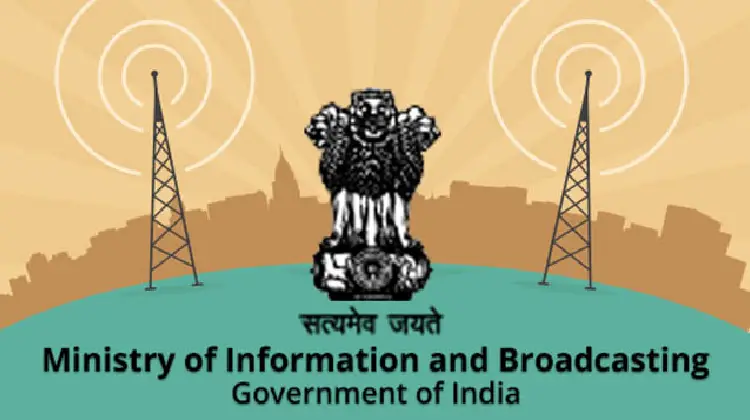The Ministry of Information and Broadcasting (MIB) has significantly ramped up its regulatory oversight of the cable television distribution sector, resulting in a substantial reduction in the number of licensed Multi System Operators (MSOs) across India. As of September 30, 2025, the official register published by the MIB shows only 818 active MSOs, marking a steady contraction in the industry landscape.
This figure represents a net decline of 24 operators in just four months, down from 842 registered MSOs at the end of May 2025. This decisive shift is the outcome of a sustained and rigorous compliance drive by the Ministry, targeting entities that fail to meet statutory conditions. The enforcement actions have included the cancellation, surrender, and closure of registrations for non-compliant entities.
The MIB’s recently released “Application Cancelled, Closed and Rejected” list provides granular detail on the enforcement actions taken. This list outlines numerous individual cases where MSO applications were either rejected, closed due to a want of documents, withdrawn by the applicants themselves, or formally cancelled for statutory lapses.
Specific grounds for these regulatory actions, as recorded in the Ministry’s official orders, include the denial of security clearance, incomplete or missing paperwork, non-payment of the requisite processing fee, reporting a negative net worth, and the suppression of material information. These case-by-case notes underscore the wide range of procedural and substantive deficiencies that have triggered the cancellations.
Industry experts and trade outlets indicate that this persistent MIB approach has been in effect since last year, leading to the cancellation or surrender of more than 1,000 MSO registrations over recent reporting periods. This extensive effort is aimed at cleansing the official database of both dormant and non-compliant entities. In recent months, approximately 114 MSO applications have been explicitly listed by the MIB as rejected, cancelled, or closed, demonstrating that the enforcement is actively addressing both existing registrants and new applicants.
For stakeholders, this stricter regulation promises a more rigorous and vetted cohort of MSOs, which should theoretically improve compliance with key obligations, such as seeding/subscriber data submission, ensuring addressable system audits, and executing anti-piracy compliance measures.
However, industry analysts have raised a cautionary note: abrupt deregistration or an opaque enforcement process could potentially cause short-term disruption. This is especially true in under-served local markets and rural pockets, where a cancelled MSO might be the only distributor. The withdrawal of such a local operator could directly affect channel availability and last-mile service continuity for consumers unless swift alternate arrangements are implemented.
The Ministry, in response, has repeatedly stressed that all closures strictly adhere to due process and are driven by statutory lapses—not discretionary intent.
What the current data clearly suggests is a sector undergoing a fundamental transition. Regulators are actively reducing the headcount of registered MSOs, effectively concentrating operating rights in entities that demonstrably meet the necessary technical, financial, and security criteria. The MIB’s published lists serve as a clear public record and send an unambiguous signal to prospective MSOs: compliance, financial soundness, and transparency of ownership remain non-negotiable for securing and retaining registration in the competitive Indian cable sector.
Key Highlights:
- The Ministry of Information and Broadcasting (MIB) has reduced the number of active licensed Multi System Operators (MSOs) to 818 as of September 30, 2025.
- This figure marks a net decline of 24 MSOs since May 2025, following a compliance drive that has cancelled or closed over 1,000 registrations in recent reporting periods.
- Cancellations were due to statutory lapses including the denial of security clearance, negative net worth, missing documents, and non-payment of fees.
- While the move aims to improve compliance and traceability, analysts warn that the deregistration of MSOs could lead to short-term service disruption in smaller towns and rural markets.

